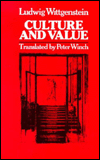skip to main |
skip to sidebar
The Myth of Psychoanalysis: Wittgenstein Contra Freud
The Myth of the Scientific Solution
The ambiguity lies in Wittgenstein's praising of Freud's theory while repeatedly condemning it as unscientific, an ambiguity that has led at least one scholar astray: Grahame Lock concludes, as quoted by Jacques Bouveresse in Wittgenstein Reads Freud, that "Wittgenstein is the `disciple' of Freud who seems to do nothing but raise objections to his master."9 Even though Wittgenstein indeed raises objections to Freud, many of them are leveled against Freud's view of his own theory, not against the explanatory power of the theory itself. For Wittgenstein, psychoanalysis is based in myth, not science. But this position must not be taken as merely a criticism of Freud, as Lock has done. Although it is an attack on Freud's view that his theory is a science, it is also a glorification of its inventiveness in going beyond a scientific theory to explain the scientifically unexplainable. Wittgenstein believed Freud "had something to say."10 Freud, Wittgenstein would have said, "invented a line of thinking."11 And it is a view of Freud's psychoanalysis that bodes with Wittgenstein's view of his own developed philosophical method, leaving Wittgenstein to see himself as a disciple of Freud, even though he did not believe he had himself invented a new line of thinking.
leveled against Freud's view of his own theory, not against the explanatory power of the theory itself. For Wittgenstein, psychoanalysis is based in myth, not science. But this position must not be taken as merely a criticism of Freud, as Lock has done. Although it is an attack on Freud's view that his theory is a science, it is also a glorification of its inventiveness in going beyond a scientific theory to explain the scientifically unexplainable. Wittgenstein believed Freud "had something to say."10 Freud, Wittgenstein would have said, "invented a line of thinking."11 And it is a view of Freud's psychoanalysis that bodes with Wittgenstein's view of his own developed philosophical method, leaving Wittgenstein to see himself as a disciple of Freud, even though he did not believe he had himself invented a new line of thinking.
 leveled against Freud's view of his own theory, not against the explanatory power of the theory itself. For Wittgenstein, psychoanalysis is based in myth, not science. But this position must not be taken as merely a criticism of Freud, as Lock has done. Although it is an attack on Freud's view that his theory is a science, it is also a glorification of its inventiveness in going beyond a scientific theory to explain the scientifically unexplainable. Wittgenstein believed Freud "had something to say."10 Freud, Wittgenstein would have said, "invented a line of thinking."11 And it is a view of Freud's psychoanalysis that bodes with Wittgenstein's view of his own developed philosophical method, leaving Wittgenstein to see himself as a disciple of Freud, even though he did not believe he had himself invented a new line of thinking.
leveled against Freud's view of his own theory, not against the explanatory power of the theory itself. For Wittgenstein, psychoanalysis is based in myth, not science. But this position must not be taken as merely a criticism of Freud, as Lock has done. Although it is an attack on Freud's view that his theory is a science, it is also a glorification of its inventiveness in going beyond a scientific theory to explain the scientifically unexplainable. Wittgenstein believed Freud "had something to say."10 Freud, Wittgenstein would have said, "invented a line of thinking."11 And it is a view of Freud's psychoanalysis that bodes with Wittgenstein's view of his own developed philosophical method, leaving Wittgenstein to see himself as a disciple of Freud, even though he did not believe he had himself invented a new line of thinking.

No comments:
Post a Comment